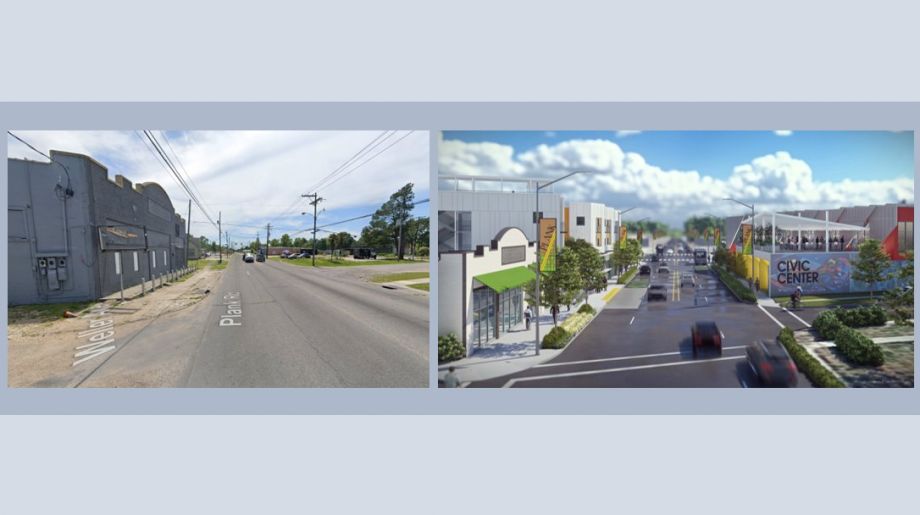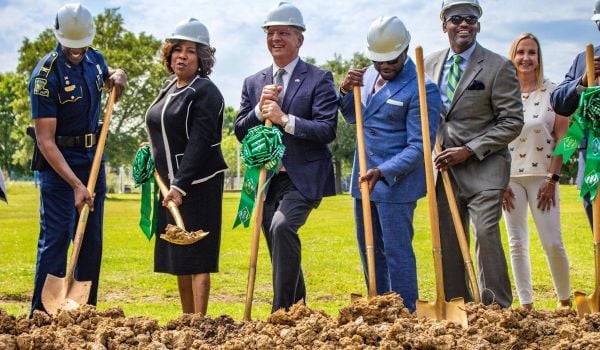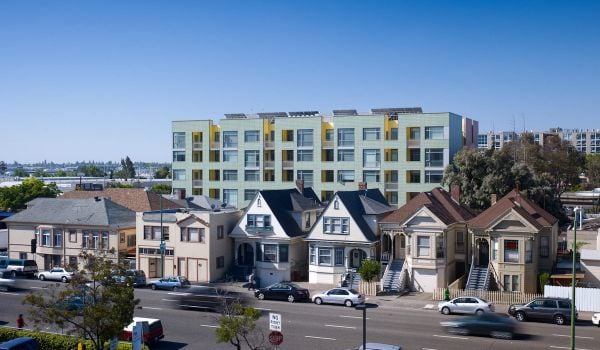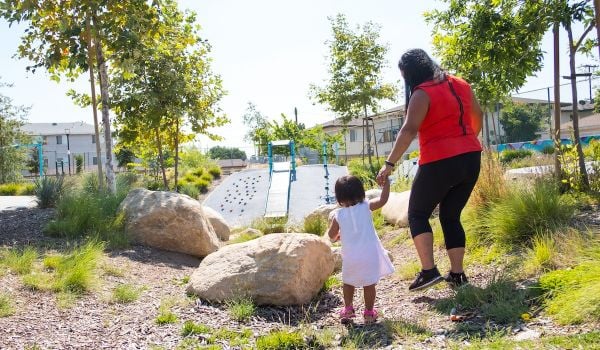“Let’s start off with this,” says Mayor Sharon Weston Broome of Baton Rouge, Louisiana. “I am a firm believer that you cannot have a city in which part is at an ‘A’ grade and part is at a ‘B’ grade. You’ve got to have more alignment if you want a city that creates prosperity and progress for all its citizens.”
For Broome, that “B” grade refers to disinvestment, and repairing that disinvestment is a major part of the platform on which she was elected mayor in 2016 — the first woman to hold that office in Baton Rouge’s history.
Perhaps the best place to see this repair at work is Plank Road, a historic corridor in North Baton Rouge that was originally constructed by enslaved Black people starting in 1850.
Today, it’s one of the most-traveled corridors in all of Baton Rouge, while at the same time one of the areas that has suffered the most deeply from disinvestment. As such, Plank Road was a high priority for redevelopment. “This has been a critical corridor for North Baton Rouge for decades, but it’s in desperate need of improvement,” Broome says.
 When she took office in January 2017, one of her first acts was to revive the city’s redevelopment authority, which had been languishing due to lack of both funds and full-time staff.
When she took office in January 2017, one of her first acts was to revive the city’s redevelopment authority, which had been languishing due to lack of both funds and full-time staff.
Broome tapped Baton Rouge native Chris Tyson, a professor of law and graduate of Howard University, Harvard’s Kennedy School of Business, and Georgetown Law School, to lead the redevelopment authority into a new era. Tyson took the reins in 2018, renaming it Build Baton Rouge, and has grown the agency from one full-time employee to 15.
Together with the Mayor’s Office, Build Baton Rouge is deep in the process of transforming Plank Road for the better. The project began with a comprehensive planning process funded by a $5 million grant from JPMorgan Chase’s Advancing Cities Challenge, with community engagement at the center.
“Plank Road is in one of the deadliest census tracts in the state,” Tyson says. “It’s about 90 percent Black, and only about a third of residents are over the official poverty line. We’re also dealing with significant blight and abandonment. That’s the challenge we have here.”
The planning process involved two phases: Cheap Talk and Mapping.
In the Cheap Talk phase, planners and those involved in the redevelopment initiative engaged in informal, no-pressure, face-to-face conversations with residents and activists to begin understanding the community’s real, everyday needs and desires.
Once these conversations had taken off, the team moved to the Mapping phase — a more formal, structured process that involves surveys, fieldwork, exploratory interviews, and ethnographic study.
Now that those phases are complete, and the planners have a clear idea of what residents need, the Plank Road project will include: a mixed-use development with a grocery store anchor; a food incubator and community kitchen; mixed-use affordable housing units; a childcare facility; a community park; improved walkability; and a bus stop that’s part of a new, expanded rapid public transit line that the Mayor pushed for upon taking office, specifically lengthening the route to go through communities that needed it most.
“We are unapologetic about putting the community at the center,” Tyson says. “So it’s housing, daycares, and parks, not coffee shops.”
Tyson is quick to mention that comprehensive plans for distressed communities are nothing new. “A lot of these communities have been planned to death,” he says, often with little real progress to show for it, usually because the planners haven’t actually invested in the community the way they need to. “The Mayor is key to the success of this project, because she’s driving accountability throughout all these structures. We’ve benefited from a very supportive mayor.”
Of course, there are still challenges to any project this large.
“Putting together the resources to drive transformational development is always a challenge — but the best way severely distressed communities are revived is when the public sector leads,” Tyson says. “That’s counterintuitive for a lot of people, who expect some wealthy investor to come in and drop a bunch of money. Usually when we see investment without a community-centered and community-led equitable development plan the result is gentrification. Its change at the expense of the people who live there. The way to prevent that is to make equity a priority.”
Then there’s the long timeline that these projects require. Understandably, many residents and activists around Plank Road feel a sense of urgency to get things moving and create change as quickly as possible.
“That urgency is completely legitimate,” Tyson says. “We know that communities like this have been intentionally and systematically denied resources. But we also know that we don’t want to just rush in and do something. That tends not to give you a quality result. We don’t want to further stigmatize and demean these communities by denying them the professionalism and expertise and vision that goes to the rest of the city.”
The transformation of Plank Road will have a major impact on the lives of those who live there, as well as those in the surrounding communities of Baton Rouge. This impact is what is most important to Broome. “Closing disparities and advancing equity have been top priorities for me since I was elected,” she says.
This article is a part of “Design Leaders,” a series highlighting mayors’ roles in design and the built environment in their cities. Design Leaders is made possible with the support of The Mayors’ Institute on City Design, a National Endowment for the Arts leadership initiative in partnership with the United States Conference of Mayors.

Elizabeth Pandolfi is a freelance arts and culture journalist. She is the former arts editor of the Charleston City Paper, and her work has appeared in Art and Antiques magazine, Charleston magazine, WNC magazine, and other publications.
















